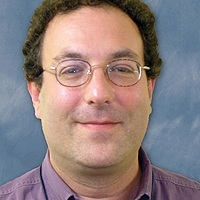Astor Wins Distinguished Research Award for School Violence Work
March 24, 2006- Research
Ron Avi Astor, a professor in the USC School of Social Work and USC Rossier School of Education, has received the 2006 Distinguished Research Award from the American Educational Research Association (AERA) for his co-authorship of 'The Contributions of Community, Family, and School Variables to Student Victimization,' published in the American Journal of Community Psychology.
The article, which Astor co-wrote with Mona Khoury-Kassabri, Rami Benbenishty and Anat Zeira of the Hebrew University School of Social Work in Israel, reports on the largest-ever, nationally representative study of school violence, offering a 'whole-school' and community approach to a worldwide affliction.
"Many school violence programs in the United States want to leave the school intact and treat violent kids as deviant, so the rest of the school doesn't have to deal with it," Astor said. "In the whole-school approach, all variables are examined, which leads to much greater detail surrounding the implementation of interventions and awareness regarding the source of the problems."
He said the research employed rigorous empirical methods and design samples to expose the effects of the family, community and schools on victimization in schools. Much of the work is an extension of his book, School Violence in Context: Culture, Neighborhood, Family, School, and Gender, co-written by Benbenishty and published by Oxford University Press in 2005.
"Our findings suggest that more resources need to be spent in schools with very high concentrations of poverty to prevent high frequencies of violence," Astor said. "Additionally, class size rather than school size appears to be more important in reducing victimization in schools."
While judges cited the work's 'great attention to methodology' and 'use of sophisticated analyses to address a worldwide problem,' a key factor in its selection to receive an award was its impact and importance to educators.
In addition to garnering international media attention, Astor's research has forged national municipal policy in Israel and fueled interest in research as a basis for the prevention and implementation of school violence programs. Already, laws concerning teacher education, school climate goals and special resources for vulnerable populations have emerged as a direct result of the findings. He is currently exploring similar issues in Los Angeles schools.
Awards Chair Becky Ladd, an associate professor at the College of Education at Arizona State University, believes the research is exemplary and easily could be emulated in other countries.
"We were particularly excited to be able to present this award to a research team that exemplifies diversity and has successfully overcome barriers and obstacles often found in research communities, including culture, gender, religious, national and theoretical orientations," she said. "It demonstrates what can be accomplished when a group of researchers come together for the benefit of children from all nations."
Each year AERA (Division E) presents the Distinguished Research Award in counseling and human development to recognize outstanding research contributions in the form of journal articles or book chapters published during the previous three years. In 2000, Astor won AERA's Palmer O. Johnson Award for best research article.
To reference the work of our faculty online, we ask that you directly quote their work where possible and attribute it to "FACULTY NAME, a professor in the USC Suzanne Dworak-Peck School of Social Work” (LINK: https://dworakpeck.usc.edu)
